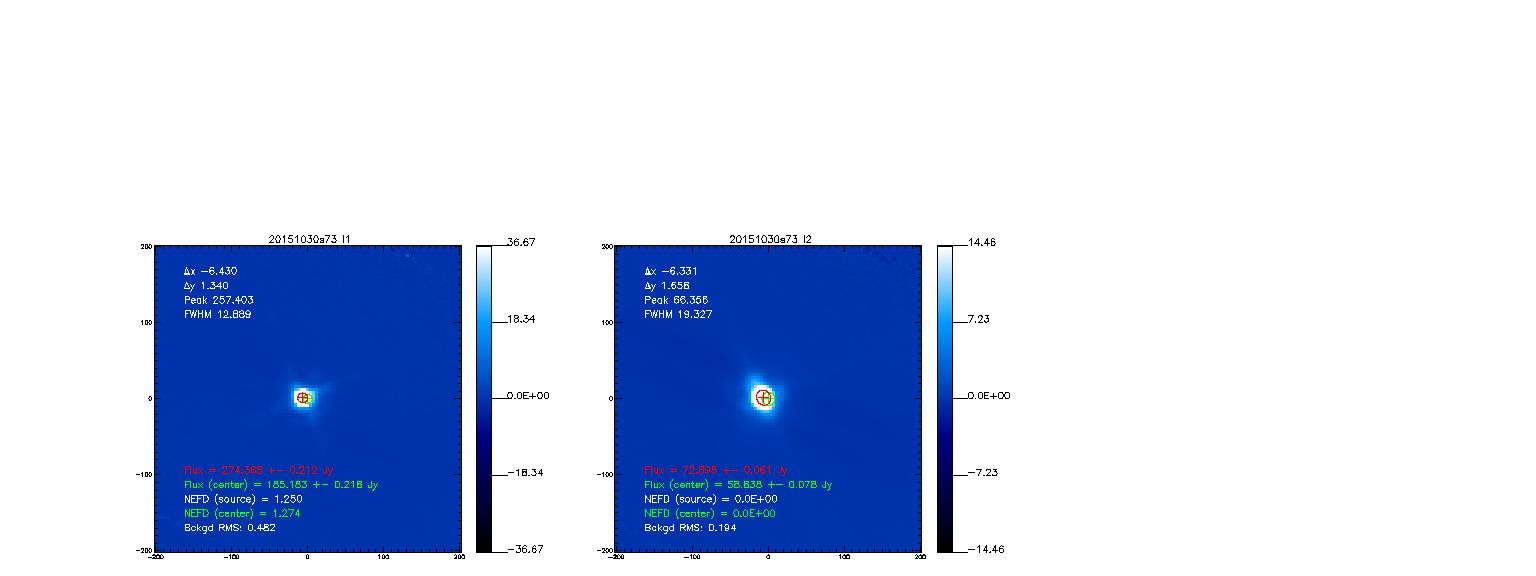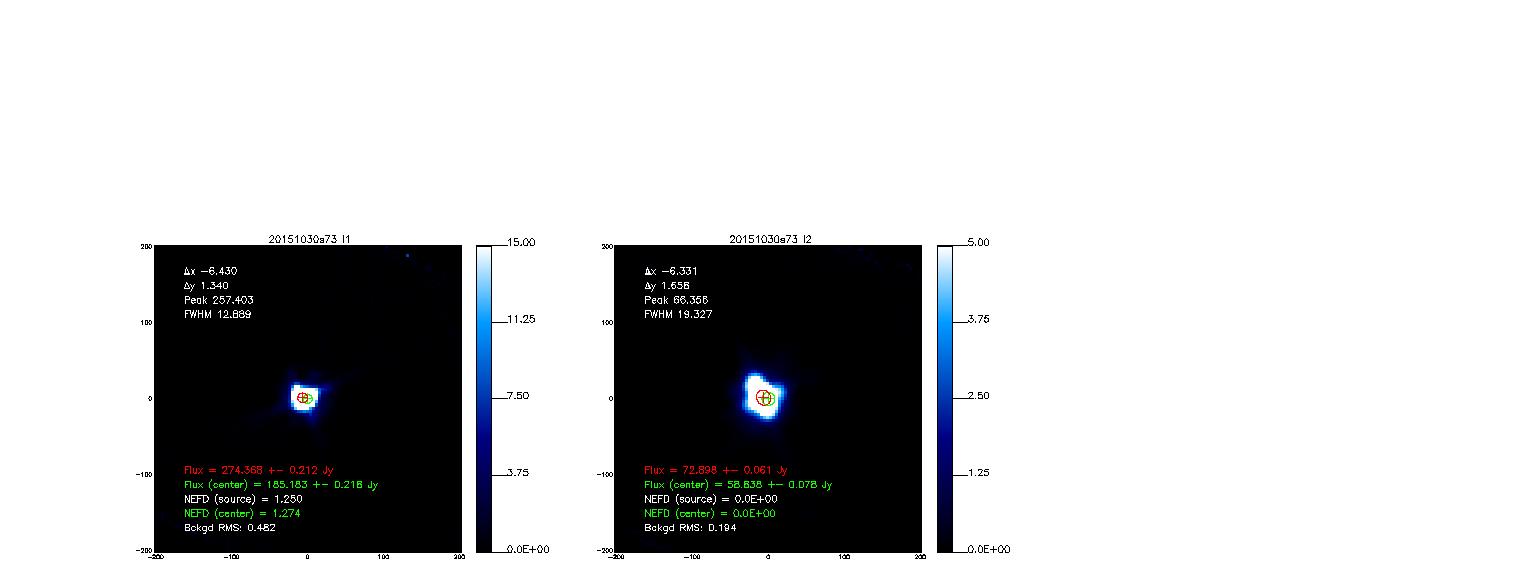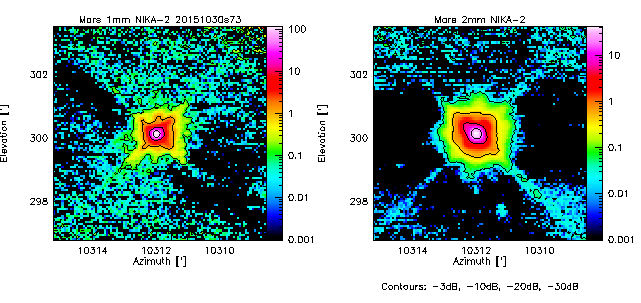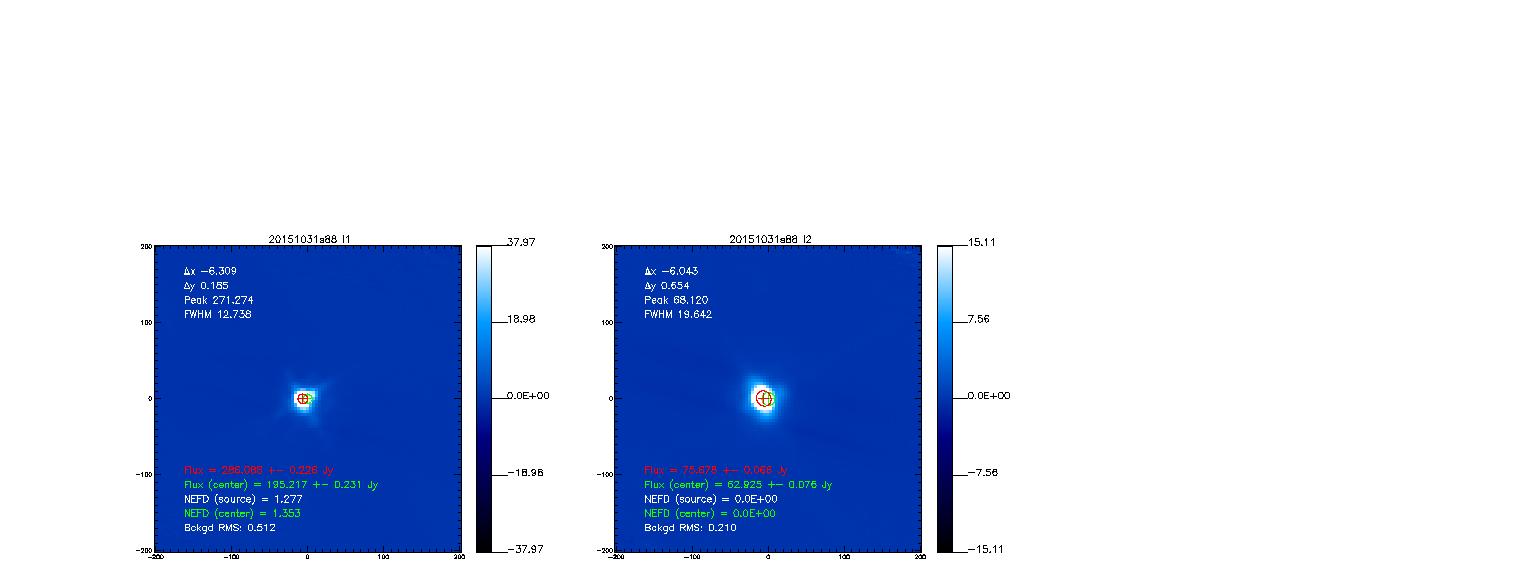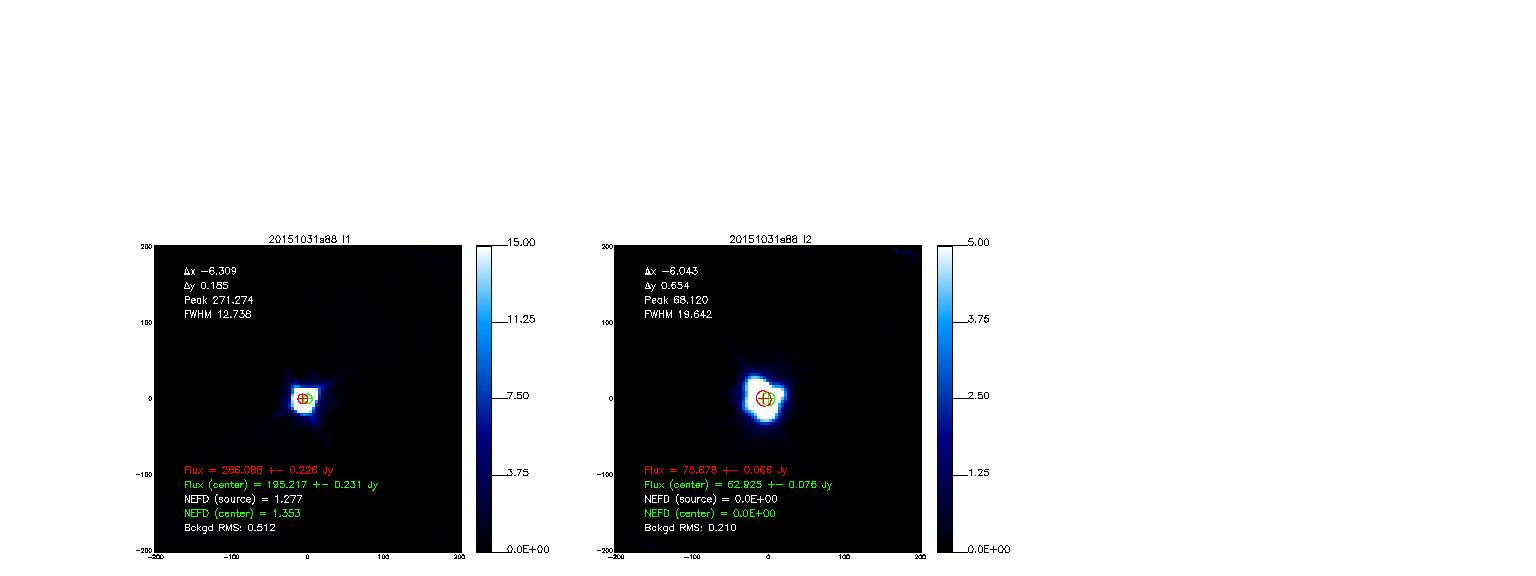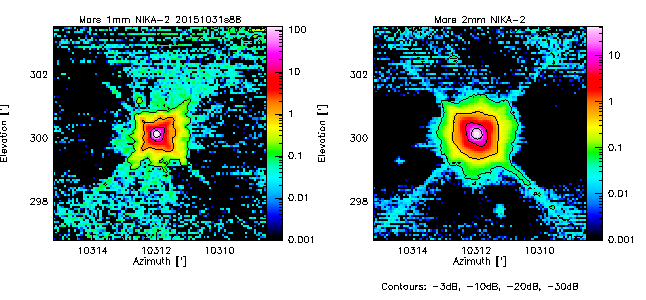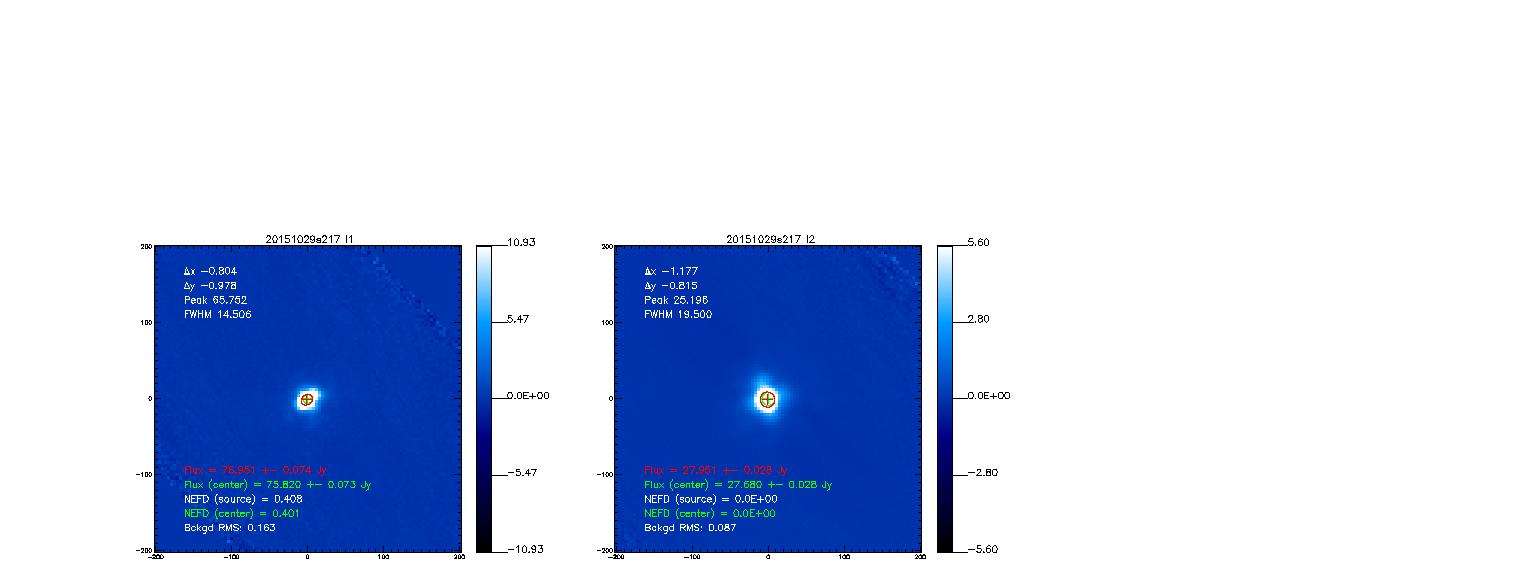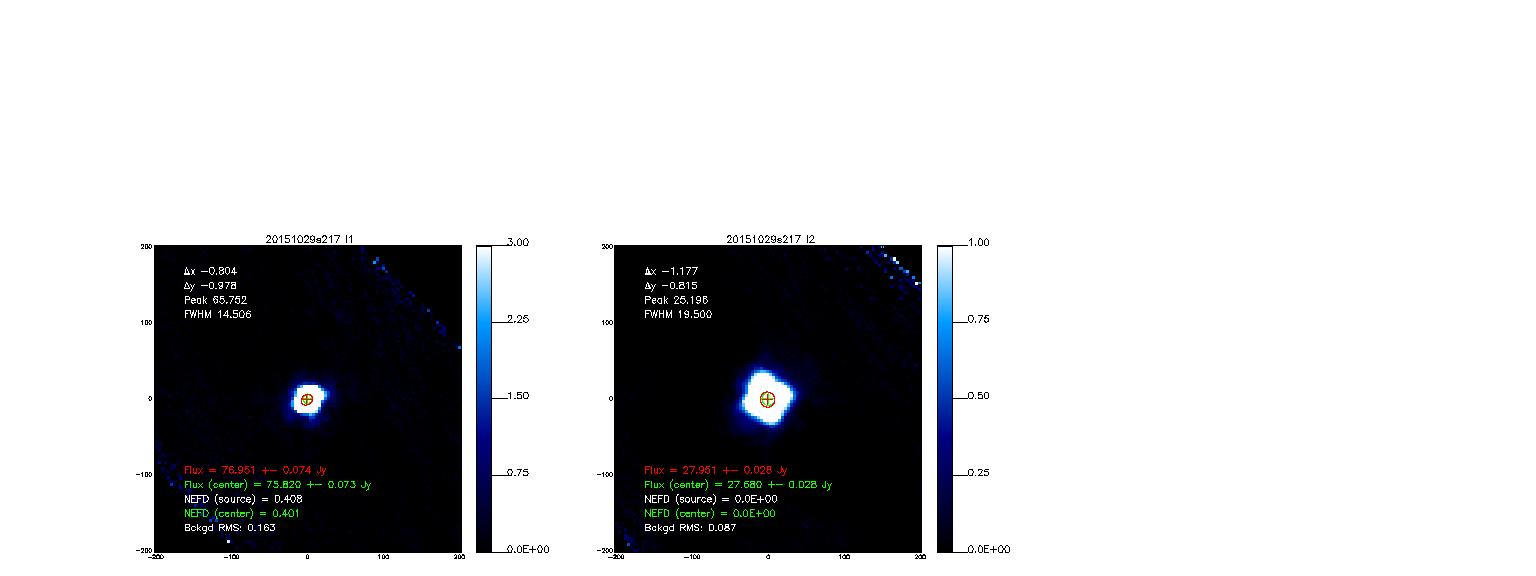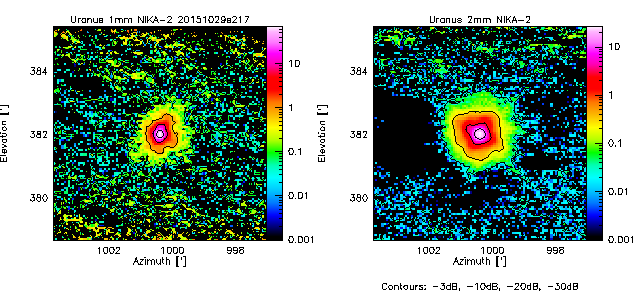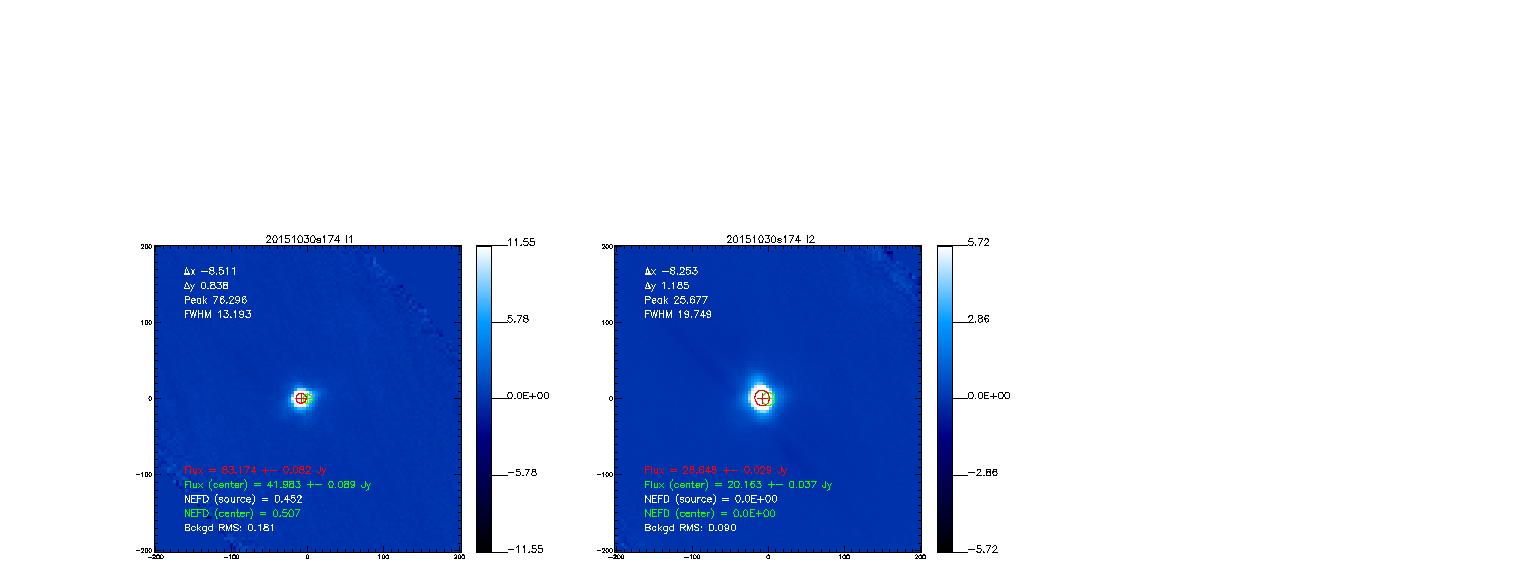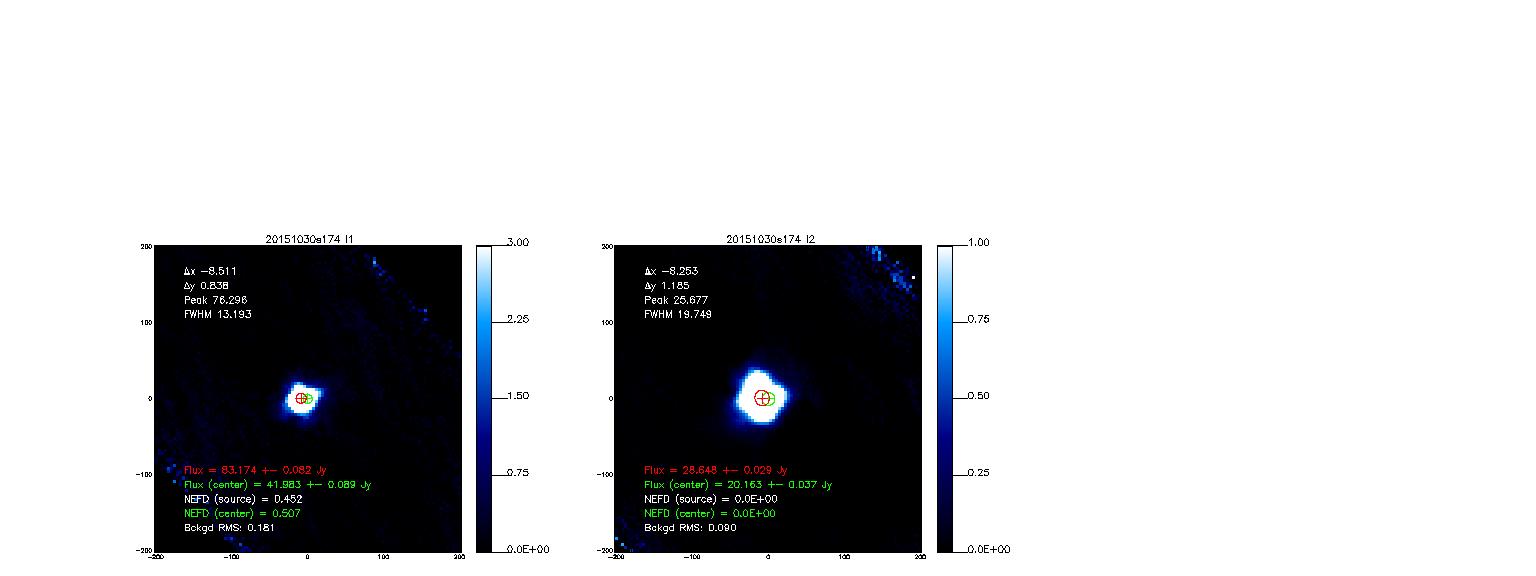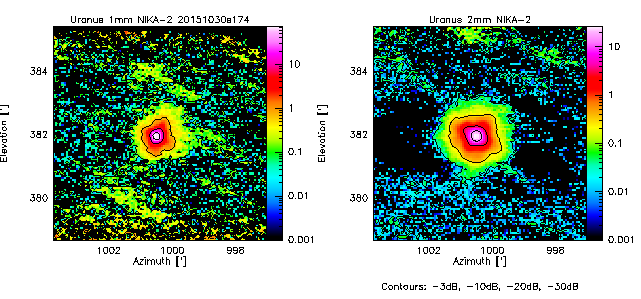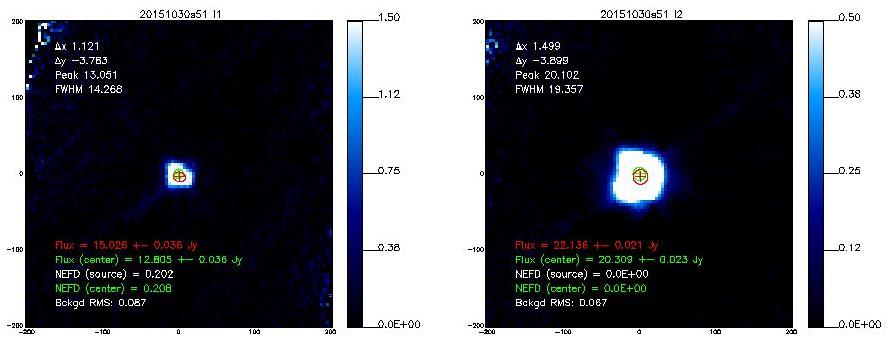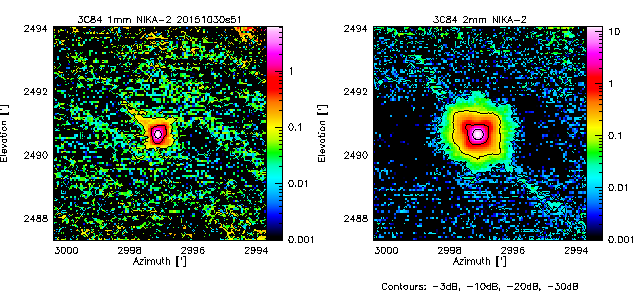|
Size: 1752
Comment:
|
Size: 2384
Comment:
|
| Deletions are marked like this. | Additions are marked like this. |
| Line 14: | Line 14: |
| * The main beam (the Gaussian part) seems with a normal width aka 11", 17". | * Mars is sufficiently bright to trace the beam down to -30dB, highlighting the quadrupod spider structure. Uranus and 3C83 are not. To go deeper, we need Saturn or Jupiter maps. |
| Line 16: | Line 16: |
| * The quadrupod holding the secondary gives clear diffraction marks as a faint cross visible in all scans. | * The main beam (the Gaussian part) seems with a normal width aka 11", 17" (but only in single-pixel analysis). The maps show broader beams. * The quadrupod holding the secondary gives clear diffraction marks as a faint cross visible in all Mars scans. |
| Line 24: | Line 26: |
| {{attachment:Beam_Mars_20151030s73.jpg||width=800}}{{attachment:Beam_Mars_20151030s73_foot.jpg||width=800}} | * 20151030s73 {{attachment:Beam_Mars_20151030s73.jpg||height=500}}{{attachment:Beam_Mars_20151030s73_foot.jpg||height=500}} {{attachment:beam20151030s73.png||height=450}} * 20151031s88 |
| Line 26: | Line 34: |
| {{attachment:Beam_Mars_20151031s88.jpg||width=500}}{{attachment:Beam_Mars_20151031s88_foot.jpg||width=500}} | {{attachment:Beam_Mars_20151031s88.jpg||height=500}}{{attachment:Beam_Mars_20151031s88_foot.jpg||height=500}} {{attachment:beam20151031s88.png||height=450}} |
| Line 30: | Line 40: |
| {{attachment:Beam_Uranus_20151029s217.jpg||width=500}}{{attachment:Beam_Uranus_20151029s217_foot.jpg||width=500}} | * 20151029s217 |
| Line 32: | Line 42: |
| {{attachment:Beam_Uranus_20151030s174.jpg||width=500}}{{attachment:Beam_Uranus_20151030s174_foot.jpg||width=500}} | {{attachment:Beam_Uranus_20151029s217.jpg||height=500}}{{attachment:Beam_Uranus_20151029s217_foot.jpg||height=500}} {{attachment:beam20151029s217.png||height=450}} * 20151030s174 {{attachment:Beam_Uranus_20151030s174.jpg||height=500}}{{attachment:Beam_Uranus_20151030s174_foot.jpg||height=500}} {{attachment:beam20151030s174.png||height=450}} |
| Line 36: | Line 54: |
| {{attachment:Beam_3C84_20151030s51.jpg||width=500}}{{attachment:Beam_3C84_20151030s51_foot.jpg||width=500}} | * 20151030s51 {{attachment:Beam_3C84_20151030s51.jpg||height=500}}{{attachment:Beam_3C84_20151030s51_foot.jpg||height=500}} {{attachment:beam20151030s51.png||height=450}} |
Describe OffProcNika2Run1Beam here.
Discussion on beams
Page last updated, FXD, CK, 2015-11-02 Figures to be redone
We measure the beam by using the middle scan of the 3-scans sequence launched with @beammap Here are the best-of on 3 sources.
Preliminary findings
- Mars is sufficiently bright to trace the beam down to -30dB, highlighting the quadrupod spider structure. Uranus and 3C83 are not. To go deeper, we need Saturn or Jupiter maps.
- The main beam (the Gaussian part) seems with a normal width aka 11", 17" (but only in single-pixel analysis). The maps show broader beams.
- The quadrupod holding the secondary gives clear diffraction marks as a faint cross visible in all Mars scans.
- In between, there is a large near-side lobe, especially at 2mm (but also visible at 1mm), that shows up as a rectangular pyramid-like shape at the 10% level, the origin of which is unknown. It seems to scale with wavelength. It was not so apparent in NIKA. Therefore the quality of the dichroic is not at the center of this issue.
For comparison, see the NIKA-1 beam maps in Fig.8 of Catalano+2014 and in Fig.8 of Monfardini+2011.
Beams on Mars
- 20151030s73
- 20151031s88
Beams on Uranus
- 20151029s217
- 20151030s174

